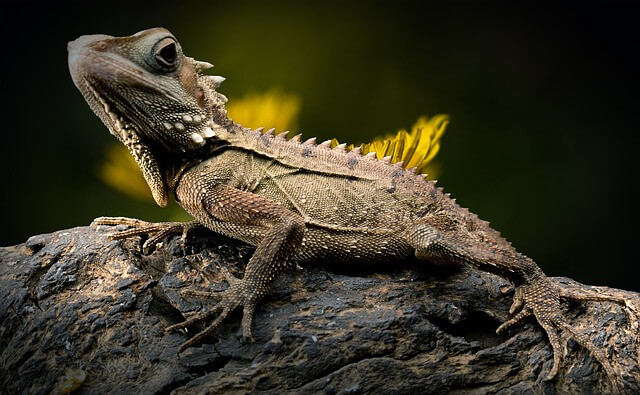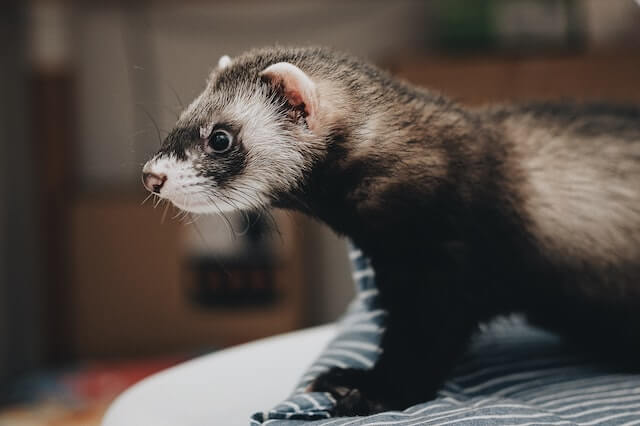The Importance of Exotic Pet Grooming and Care: Tips for Ensuring a Happy and Healthy Pet

Did you know that nearly 12% of American households have at least one exotic pet? While these unique animals can make great companions, they also require specialized care to thrive. Exotic pet grooming needs must be met to ensure their health and happiness.
In fact, according to the American Veterinary Medical Association, many health issues in exotic pets can be traced back to inadequate care or nutrition. That’s why it’s essential for exotic pet owners to prioritize both grooming and care to keep their pets in top shape.
Whether you have a furry ferret, a colorful bird, or a scaly reptile, proper grooming is a critical aspect of caring for your exotic pet. Regular grooming not only helps keep your pet looking and feeling great, but it can also prevent health issues and promote overall well-being.
As an exotic pet owner, it’s important to understand your pet’s unique needs in order to provide proper care. Exotic pets, including ferrets, reptiles, and birds, require specialized care to thrive. Inadequate care or nutrition can lead to health issues such as obesity, metabolic bone disease, and digestive problems.

According to a survey by the American Veterinary Medical Association, over 4.5 million households in the United States own exotic pets, which highlights the importance of understanding the unique needs of these pets.
Each type of exotic pet has its own specific care requirements, including nutrition, environmental conditions, and regular health check-ups. By identifying and meeting your pet’s specific needs, you can ensure that they live a happy and healthy life.
Let’s dive in and learn more about how to keep your furry, scaly, or feathered friend healthy and happy.
Types of Exotic Pets
1. From furry ferrets to scaly reptiles, exotic pets come in many forms
2. Each type of exotic pet has unique care requirements
3. Understanding your pet’s specific needs is essential to providing proper care
Understanding Your Exotic Pet’s Unique Needs
1. Nearly 12% of American households have at least one exotic pet
2. Exotic pets require specialized care to thrive
3. Inadequate care or nutrition can lead to health issues
Specific Care Needs of Exotic Pets
1. Exotic pets may have different nutritional needs than traditional pets
2. Some exotic pets require specialized habitats or environmental conditions
3. Common health issues in exotic pets can be prevented with proper care
Identifying Common Health Issues
1. Inadequate nutrition can lead to malnourishment and other health problems
2. Improper habitat conditions can cause stress or illness
3. Regular health check-ups can help identify potential issues before they become serious
Inadequate care or nutrition can lead to health issues, so it’s crucial to identify and meet your pet’s unique needs. Whether it’s providing the right nutrition, creating a specialized habitat, or addressing potential health issues, understanding your exotic pet’s needs is key to keeping them healthy and happy.
Common Health Issues
Each type of exotic pet has unique care requirements that are essential to its health and well-being. Here are some of the specific care needs of different types of exotic pets:
Reptiles

Reptiles, including snakes, lizards, and turtles, require a specific temperature and lighting setup in their habitat to maintain their health. They also need a balanced diet that includes live or frozen prey and fresh vegetables. Regular veterinary checkups are important for monitoring their health and preventing illnesses such as metabolic bone disease.
Birds

Birds require a spacious cage with plenty of room to fly and play. They also need a balanced diet that includes a variety of seeds, fruits, and vegetables. Regular grooming is essential to maintaining healthy feathers, and birds may also need their beaks trimmed to prevent overgrowth.
Ferrets

Ferrets are active and social animals that require a lot of attention and playtime. They need a large cage with plenty of toys and room to move around. Ferrets are strict carnivores and require a diet high in protein and fat. Regular veterinary checkups are important for monitoring their health and preventing illnesses such as dental disease.
By understanding the specific care needs of each type of exotic pet, you can ensure that they receive the proper care and attention they need to stay healthy and happy. Additionally, it’s important to research and learns about your pet’s individual species and any unique care requirements they may have. By providing a safe and healthy environment, proper nutrition, and regular veterinary care, you can help your exotic pet thrive.
Identifying common health issues
As an exotic pet owner, it’s important to be aware of common health issues that can affect your furry friend. By recognizing the signs and symptoms of these health issues, you can seek veterinary care early and help prevent them from becoming more serious.
Common health issues that exotic pets may experience
Respiratory infections
Respiratory infections are common in reptiles and birds and can cause symptoms such as lethargy, loss of appetite, and difficulty breathing.
Metabolic bone disease
Metabolic bone disease is a condition that affects reptiles and is caused by a lack of calcium and vitamin D in their diet. Symptoms may include softening of the bones, lethargy, and difficulty moving.
Dental disease
Ferrets and other exotic pets with teeth can experience dental disease if their teeth become overgrown or if they develop gum disease. Signs may include drooling, loss of appetite, and difficulty eating.
Parasites
Parasites such as mites and ticks can affect reptiles and birds, causing symptoms such as itching, redness, and skin irritation.
If you notice any signs or symptoms of these health issues or any other unusual behavior in your exotic pet, it’s important to seek veterinary care right away.
By being proactive about your pet’s health and well-being, you can help ensure that they live a long and healthy life. Additionally, regular veterinary check-ups can help detect health issues early and prevent them from becoming more serious.
Essential Exotic Pet Care Practices
Feeding and nutrition
Feeding and nutrition are critical components of maintaining the health and well-being of your exotic pet. Each type of exotic pet has unique dietary requirements, so it’s important to research and understand your pet’s specific needs.
Here are some general guidelines for feeding your exotic pet
- Exotic pets like reptiles and birds require a diet that is rich in protein and calcium. Insects live prey, and fresh fruits and vegetables are often good sources of these nutrients.
- For small mammals like ferrets and hedgehogs, a diet that is high in protein and fat is recommended. Many small mammal diets are available commercially, but it’s important to check the ingredients and make sure they meet your pet’s nutritional needs.
- Avoid feeding your exotic pet table scraps, as many human foods can be harmful to them. For example, chocolate can be toxic to dogs and cats, while avocados can be toxic to birds.
- Make sure that your exotic pet always has access to clean, fresh water. Depending on the type of pet you have, you may need to provide a water bowl or a water bottle.
- It’s also important to monitor your pet’s weight and adjust their diet accordingly. Overfeeding can lead to obesity, which can contribute to a range of health problems.
By understanding your exotic pet’s unique nutritional needs and providing them with a balanced and healthy diet, you can help ensure that they stay happy and healthy. Additionally, regular veterinary check-ups can help identify any nutritional deficiencies or health issues related to diet and ensure that your pet’s diet is optimized for their needs
Environmental needs and habitat maintenance
Creating and maintaining a suitable habitat is essential for the health and well-being of your exotic pet. Each type of exotic pet has unique environmental needs, so it’s important to research and understand your pet’s specific requirements.
General guidelines for creating a suitable habitat for your exotic pet
- Temperature and humidity levels are crucial for many types of exotic pets. For example, reptiles often require a specific temperature range and humidity level to thrive. It’s important to research and provide the appropriate heating and lighting equipment to maintain these conditions.
- Providing a suitable enclosure is important for the physical and psychological health of your exotic pet. For example, many exotic pets like birds and rodents require ample space to move around and play.
- Regular cleaning and maintenance of your pet’s enclosure are important for their health and well-being. Make sure to clean your pet’s enclosure regularly and remove any waste or uneaten food.
- Providing enrichment activities is important for many exotic pets to prevent boredom and stimulate their minds. This can include providing toys, hiding treats, or creating climbing structures for your pet.
By understanding your exotic pet’s unique environmental needs and providing them with suitable habitats, you can help ensure that they stay happy and healthy. Regular maintenance and cleaning of your pet’s habitat are also important to prevent the growth of harmful bacteria or parasites. Additionally, regular veterinary check-ups can help identify any environmental factors that may be impacting your pet’s health and ensure that their habitat is optimized for their needs.
Importance of Exotic Pet Grooming
Exotic pets require a different kind of care and attention compared to traditional pets like cats and dogs. Along with proper nutrition and healthcare, grooming is an essential aspect of their overall well-being. While grooming may seem like a purely cosmetic concern, it actually provides numerous benefits for exotic pets.
- Improved physical health: Regular grooming helps prevent the buildup of dirt, debris, and excess oils on the skin and coat of exotic pets. This can reduce the risk of skin irritations, infections, and other health issues. Additionally, grooming helps to promote healthy blood flow and can provide a soothing massage for your pet.
- Better mental health: Grooming sessions can also provide a bonding experience between you and your exotic pet. This can help reduce stress and anxiety in your pet, which can be common in animals that are not accustomed to being handled or living in captivity.
- Enhanced appearance: Grooming helps keep your exotic pet looking its best. This not only improves their physical appearance but also helps to maintain their self-esteem and confidence.
- Detection of health issues: Regular grooming sessions allow you to examine your exotic pet’s skin, coat, eyes, and ears more closely. This can help you detect any potential health issues early on, allowing for prompt treatment and a better prognosis.
Overall, grooming provides many benefits for exotic pets beyond just making them look and feel good. By incorporating regular grooming into your pet’s care routine, you can help promote their physical and mental health, improve their appearance, and detect any potential health issues early on. So, the next time you’re caring for your exotic pet, remember to include grooming as an important part of their overall care.
Specific grooming needs of different types of exotic pets
Exotic pets are unique and fascinating creatures, each with their own set of specific grooming needs. Whether you have a reptile, bird, small mammal, or other exotic pet, understanding their grooming requirements is essential to ensuring their health and happiness.
Reptiles, such as snakes and lizards, require a specialized approach to grooming. Depending on the species, they may need regular skin shedding, nail trimming, and teeth cleaning. For those that require soaking, a shallow dish of lukewarm water should be provided to aid in shedding and hydration.
Birds require regular feather maintenance, including clipping and cleaning. Some birds also require beak trimming, as their beaks can grow too long and cause problems. Bathing is also important for birds, and the method may vary depending on the species. For example, some birds prefer mist baths while others enjoy a shallow dish of water.
Small mammals, such as rabbits, guinea pigs, and hedgehogs, require regular coat brushing to prevent matting and maintain proper temperature regulation. Nail trimming is also important to prevent overgrowth and injury. Dental care is another crucial aspect of grooming for small mammals, as their teeth continuously grow and can cause serious health issues if not properly maintained.
In addition to these specific grooming needs, all exotic pets require regular cleaning of their enclosure or habitat. This includes removing waste, replacing bedding, and disinfecting surfaces. Proper habitat maintenance is crucial to preventing the spread of disease and ensuring a healthy living environment for your exotic pet.
Also read The Top 10 Most Popular Exotic Pet Breeds and Their Care Requirements
Overall, understanding and meeting the specific grooming needs of your exotic pet is essential to their health and well-being. By providing proper care and attention, you can help your furry, scaly, or feathered friend thrive and live a happy life by your side.
Addressing common grooming issues
Grooming your exotic pet is an essential part of their overall health and well-being. It not only keeps them looking their best, but it can also help prevent common health issues and strengthen your bond with your furry friend. However, grooming can present some challenges, and it’s important to know how to address them. In this article, we’ll explore some common grooming issues and how to deal with them.
Understanding Common Grooming Issues: One of the most common issues with exotic pet grooming is its natural oils. Unlike cats and dogs, many exotic pets cannot regulate their oil production, which can lead to greasy fur and skin. This can be especially challenging for owners of hedgehogs, chinchillas, and guinea pigs, as they require frequent bathing to maintain good hygiene. However, excessive bathing can strip away essential oils, leaving their skin dry and vulnerable to infections. The key is to find a balance between bathing and preserving natural oils.
Another issue that exotic pet owners face is overgrown nails. Unlike dogs and cats, many exotic pets have delicate, small feet and require a gentle touch during nail trimming. If you’re not comfortable trimming your pet’s nails, it’s best to seek professional help from a veterinarian or trained groomer.
Addressing Common Grooming Issues: When it comes to dealing with excessive oil production, it’s important to choose the right shampoo for your pet’s specific needs. Many exotic pets require a gentle, sulphate-free shampoo that won’t strip away natural oils. You can also use dry shampoo in between baths to keep your pet’s fur clean and fresh.
If your pet has overgrown nails, it’s important to address the issue promptly. Overgrown nails can cause discomfort and pain and even lead to infection. You can trim your pet’s nails with a small, sharp nail clipper, making sure to avoid cutting the quickly. If you’re not comfortable doing it yourself, seek help from a veterinarian or groomer.
Tips for Successful Exotic Pet Grooming and Care
Exotic pets require special attention and care, and grooming is an important aspect of their overall well-being. Grooming not only helps keep your exotic pet looking its best, but it also plays a crucial role in maintaining its health. In this article, we will discuss the specific benefits of exotic pet grooming and how it can help keep your pet happy and healthy.
- Improves Skin and Coat Health: Regular grooming helps to remove dead skin cells, excess hair, and dirt from your pet’s coat. This promotes healthy skin and coat, preventing infections, irritations, and allergies. Grooming also helps distribute the natural oils in your pet’s coat, resulting in a shiny and healthy-looking coat.
- Prevents Parasites: Exotic pets are prone to parasites such as fleas, ticks, and mites, which can cause serious health issues. Grooming your pet regularly helps you detect and prevent these parasites, as well as remove them if they are already present.
- Enhances Bonding: Grooming your pet is an excellent way to strengthen your bond with it. It helps build trust and confidence between you and your pet and creates a positive experience for both of you.
- Reduces Stress: Exotic pets can easily become stressed due to changes in their environment or routine. Grooming provides a calming and relaxing experience for your pet, reducing stress and anxiety.
- Early Detection of Health Issues: Grooming allows you to closely examine your pet’s body, including the eyes, ears, nose, and mouth. This provides an opportunity to detect any abnormalities, such as infections, wounds, or lumps, at an early stage. Early detection can help prevent serious health issues and ensure prompt treatment.
Proper handling and restraint techniques
Proper handling and restraint techniques are crucial for the safety and well-being of both exotic pets and their owners. While most exotic pets may be small in size, they are often very agile and can be difficult to control. Therefore, it’s important for pet owners to learn how to handle and restrain their pets properly.
Different types of exotic pets require different handling techniques. For example, birds should be handled gently and with caution, as their wings can be easily damaged. Reptiles, on the other hand, may require specialized equipment such as gloves or hooks to prevent injury to the handler and the pet.
It’s also important to consider the temperament of the exotic pet. Some pets may be more aggressive or easily frightened and may require more specialized handling techniques. Pet owners should take the time to get to know their pet’s behavior and temperament and learn the best way to handle them to avoid causing undue stress or injury.
In addition to proper handling techniques, it’s also important to ensure that pets are safely restrained when necessary. This is particularly important during grooming or veterinary visits, where pets may need to be held still for extended periods of time. Restraint devices such as leashes, harnesses, or cages should be used when necessary to prevent escape or injury.
Conclusion
By learning and practicing proper handling and restraint techniques, exotic pet owners can ensure the safety and well-being of their pets, as well as themselves. It’s also important to seek guidance from a veterinarian or experienced exotic pet handler if you have any concerns or questions about proper handling and restraint techniques.



